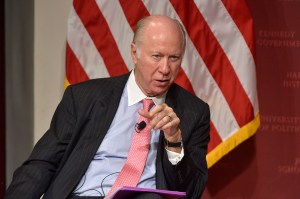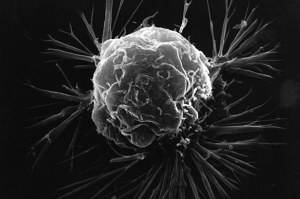Tag: Breast Cancer
-
Health
Estrogen a more powerful breast cancer culprit than we realized
A Harvard Medical School study shows the sex hormone estrogen — thus far thought to be only a fuel for breast cancer growth — can directly cause tumor-driving genomic rearrangements.
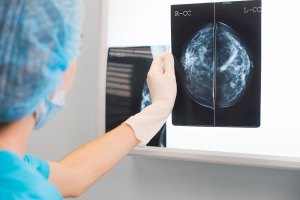
-
Health
When to get first mammogram? Doctor explains latest advice.
Guidance shifts amid troubling breast cancer trends in young and Black women.
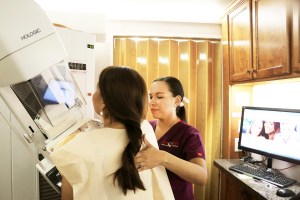
-
Health
New FDA rules may help with prevention, detection of breast cancer
Radiologist explains how new rule on tissue “density” could aid prevention, detection of breast cancer, add to doctor-patient dialogue.
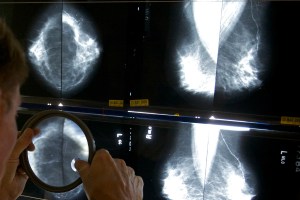
-
Health
Breast cancer findings ‘suggest a new set of criteria for avoiding radiation’
Emerging research suggests following surgery with medication may produce similar results for patients as young as 55.
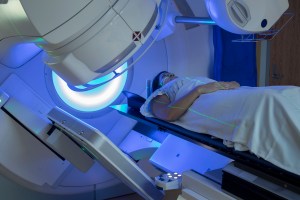
-
Health
Genetic risk scores developed for six diseases
Newly developed polygenic risk scores, which add up hundreds or thousands of genetic risk factors for six common diseases, can aid physicians and patients in making individualized disease screening and prevention decisions.
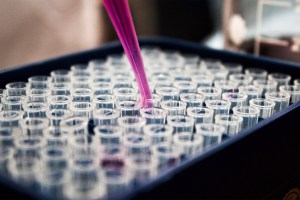
-
Health
Hope for breast cancer patients, but with a cruel caveat
A new target for an old antibiotic is rooted in a decades-long effort to unlock the secrets of a lethal childhood disease.
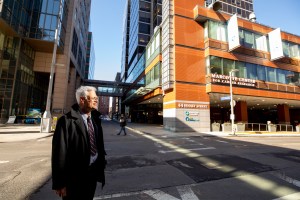
-
Health
How unjust police killings damage the mental health of Black Americans
Harvard Chan’s David Williams, whose research looks at how discrimination affects Black people’s health, talks about his pioneering work to assess the toll that police killings are having on Black mental health.

-
Science & Tech
Blood biopsies offer early warning of cancer’s return
Researchers have designed personalized blood biopsies that offer the potential of an early warning signal of breast cancer recurrence.
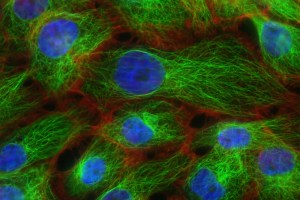
-
Health
Drop in cancer deaths lifts U.S. life expectancy
A decline in cancer mortality was a prominent feature of recent good news about U.S. life expectancy. The Gazette spoke with the director of the Chan School’s Zhu Family Center for Global Cancer Prevention to understand why.
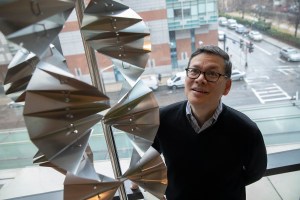
-
Health
Dietary link found to drug-resistant breast cancer
Researchers at Beth Israel Deaconess Medical Center and Harvard Medical School have linked a common dietary element to breast cancer drug resistance, raising the prospect of a new way to attack a major cause of breast cancer death.

-
Science & Tech
New test helps ID those at risk for five deadly diseases
A Harvard research team developed an analysis to measure millions of small genetic variations and calculate the risk of developing five serious common diseases: coronary artery disease, atrial fibrillation, Type 2 diabetes, inflammatory bowel disease, or breast cancer.
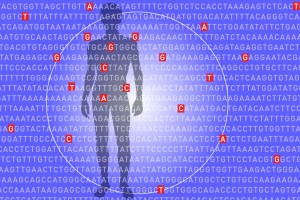
-
Health
Race bias seen in breast-cancer screening
A new analysis urges guidelines that account for racial differences in development, aggressiveness of breast cancer.
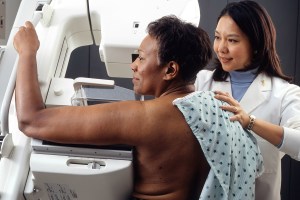
-
Health
New weapon against breast cancer
Levels of a molecular marker in healthy breast tissue can predict a woman’s risk of getting cancer, according to new research from the Harvard Stem Cell Institute.
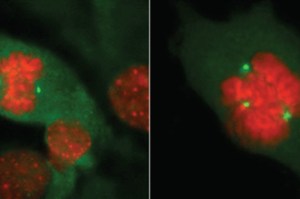
-
Health
Lifting the ‘family curse’
Removing a woman’s healthy breasts might seem like a radical response to fears of breast cancer. But for women with genetic mutations that put them at high risk of developing the disease, it’s a step that can cut their vulnerability by 90 to 95 percent.
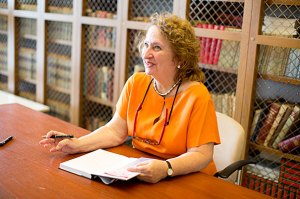
-
Health
A marker for breast cancer
An international scientific collaborative led by the Harvard Stem Cell Institute’s Kornelia Polyak has discovered why women who give birth in their early 20s are less likely to develop breast cancer than women who don’t, triggering a search for a way to confer this protective state on all women.
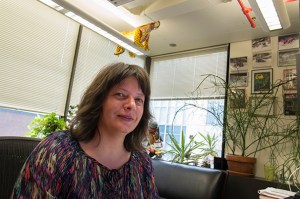
-
Campus & Community
The climb of her life
Pamela Thompson, manager of adult education for the Arnold Arboretum and a breast cancer survivor, has been training since January to summit California’s 14,000-foot Mount Shasta, a climb through ice and snow that will require crampons and ice axes, to raise money and awareness for breast cancer prevention.
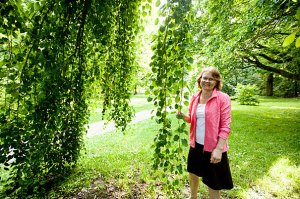
-
Campus & Community
In the Pink Zone
Harvard’s Lavietes Pavilion was bedecked in a paler shade of crimson on Saturday for the Harvard-Yale women’s basketball game in honor of the Pink Zone, an event to raise awareness and support in the fight against breast cancer.

-
Health
Noncancerous cells carry weight
In recent years Harvard investigators have discovered that breast tumors are influenced by more than just the cancer cells within them.
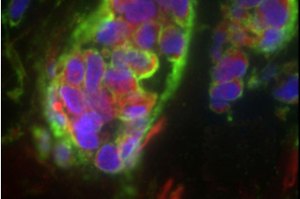
-
Health
When to alter cancer screenings
Not only is it important for physicians to be fully informed about any cancer in their patients’ family histories, but a massive new study led by a Harvard researcher at Massachusetts General Hospital (MGH) and a University of California scientist indicates that it is important to update that history whenever there are contemporaneous changes in…
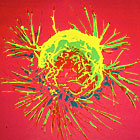
-
Health
When estrogen isn’t the culprit
Although it sounds like a case of gender confusion on a molecular scale, the male hormone androgen spurs the growth of some breast tumors in women. In a new study, Harvard scientists at Dana-Farber Cancer Institute provide the first details of the cancer cell machinery that carries out the hormone’s relentless growth orders.
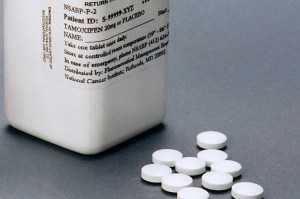
-
Campus & Community
Come on, Eileen
Workers at Harvard’s Biological Laboratories organize a team to raise funds for cancer research, and to support ill colleague Eileen Snow.
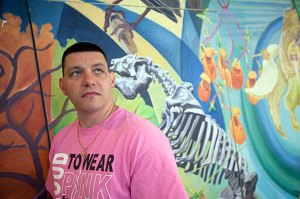
-
Health
What’s behind aggressive breast cancer
Harvard scientists at Dana-Farber Cancer Institute have identified an overactive network of growth-spurring genes that drive stem-like breast cancer cells enriched in triple-negative breast tumors, a typically aggressive cancer that is highly resistant to current therapies.
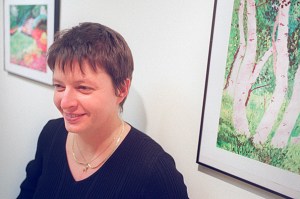
-
Health
The debate over mammograms
The debate over whether routine mammogram screenings are useful diagnostic tools or potentially ineffective and wasteful was the issue of a Harvard School of Public Health forum on March 8.

-
Health
Improving a cancer drug
Researchers, led by Harvard Medical School Assistant Professor Shiladitya Sengupta, have devised a way to improve a low-cost, effective cancer drug, cisplatin, whose use has been limited by its toxicity.
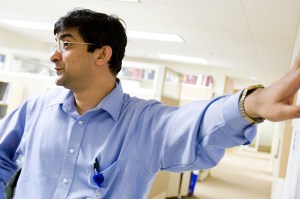
-
Campus & Community
Bench pressing for a cure
On May 3, more than 250 Harvard athletes from 18 varsity teams took the Palmer-Dixon Gymnasium by storm for the second annual Bench Press for Breast Cancer Challenge, pumping iron and raising greenbacks for the Susan G. Komen for the Cure.

-
Campus & Community
Painkillers may lower risk of breast and ovarian cancers: Harvard researchers
Harvard researchers find that painkillers reduce levels of the female hormone oestrogen in the system which can fuel certain forms of cancer…
-
Campus & Community
Aspirin may combat cancer, study suggests
Scientists from several Harvard-affiliated institutions reported that women who took aspirin after completing breast cancer treatment were half as likely to die from the disease as women who did not regularly use aspirin…
-
Health
Breast cancer: Scourge of developing world
Three-day symposium opens, focusing attention on the rise of breast cancer in developing nations, even as resources are scarce to contain it.

-
Campus & Community
U.S. study shows mammograms save lives
“The most effective method for women to avoid death from breast cancer is to have regular mammographic screening,” Dr. Blake Cady of Cambridge Hospital Breast Center and Harvard Medical School in Massachusetts told reporters in a telephone briefing…

